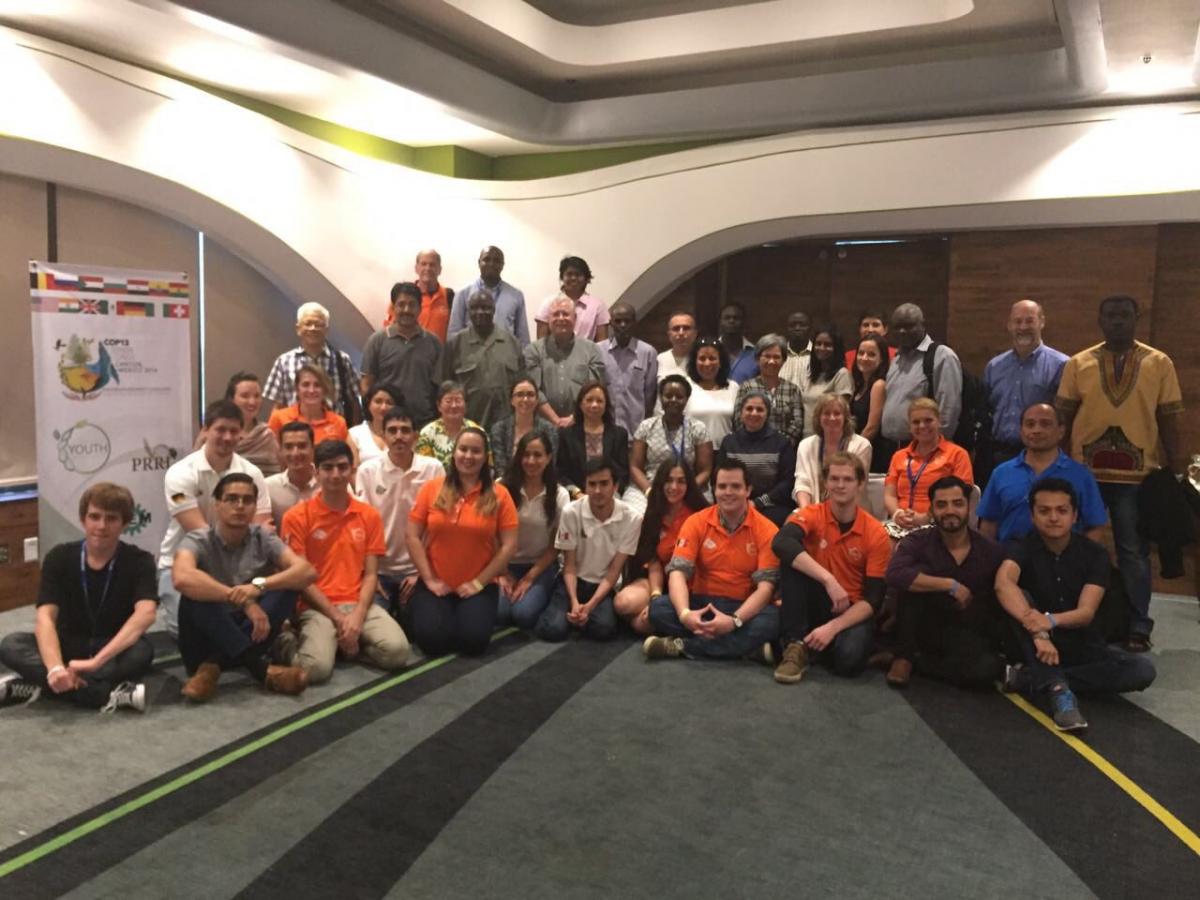Fighting for science: Capacity building, communication and public awareness

Photo credit: Thomas Stirrop
It s day 4 of the 2016 UN Conference on Biodiversity COP13, and the heated debates and high-level negotiations continue. Although our days our long, the stimulating discussions and the influence that we are having on the people and the process make it well worth all the effort.
Today s discussions were centered around a number of topics, but of particular interest to the Alliance of Science was the discussion about capacity building, communication and public awareness. Communication and public awareness are the cornerstones of our work and we feel quite strongly that not enough has been done in this regard on behalf of the United Nations. From our point of view, not enough people are being sensitized to biotechnology and biodiversity, or even heard of the Cartegena Protocol. This is a shame and works to the detriment of those who are most vulnerable, as these negotiations can have a direct impact on what tools are available for human use.
Luckily, once again science was given an opportunity to speak to all delegations as Public Research and Regulation Initiative (PRRI), the Alliance for Science and the International Service for Acquisition of Agri-biotech Applications (ISAAA) offered powerful statements on the crucial role that communication and public awareness play in acceptance of new technologies like those offered by modern biotechnology.
The first statement, made by Margaret Karembu of ISAAA reminded delegations that:
“Public awareness initiatives in the developing world should focus on how modern biotechnology can play a role in addressing food security, climate change and sustainable use of biodiversity, and not just in creating awareness on biosafety regulations. Creating awareness on biosafety without providing the public opportunity to understand how modern biotechnology works is ineffective and polarizes public engagement measures.
Madam Chair, we strongly recommend that public awareness should be backed with scientific data and evidence of 20 years on socio-economic benefits, not on imaginary risks and ideological hypothesis. Together with the Public Research and Regulation Initiative (PRRI), and the Cornell Alliance for Science, we represent a big pool of scientists from various backgrounds on modern biotechnology and biosafety and are open to partnerships interested in getting factual information in these fields.
ISAAA will continue to support science-based decisions in guiding policy choices on adoption of modern biotechnology.”
Representing the Cornell Alliance for Science, I was allowed to make a statement to the delegations:
“As the Cartagena Protocol recognizes in its Preamble: Modern biotechnology has great potential for human well-being if developed and used with adequate safety measures for the environment and human health.
In practice this means that as we develop public awareness, education and participation we should focus on the potential for human well-being as well as adequate safety measures.
While we acknowledge that governments do indeed spend resources on public awareness, education and participation in relation to the Cartagena Protocol, PRRI notes with great concern that this investment is not nearly sufficient to make a difference in the public s understanding of the potential that biotechnology has to serve the needs of our planet.
We therefore call upon all governments to greatly intensify public awareness, education and participation in relation to biotechnology s great potential for human well-being, as well as for the conservation and sustainable use of biological diversity, as referenced in article 23 of the Protocol.”
Having the opportunity to make these statements is a crucial element to getting the appropriate language in the final documentation and outcomes of the convention. It is the best possible chance we have to have the voice of science heard and to remind audiences that knowledge and innovation is for everyone.
We must continue to fight to ensure that communications initiatives like the Alliance for Science can keep doing their work and bring crucial, evidence-based information and innovation to all those who may need it.
Go ahead, fighters! #fightforscience
